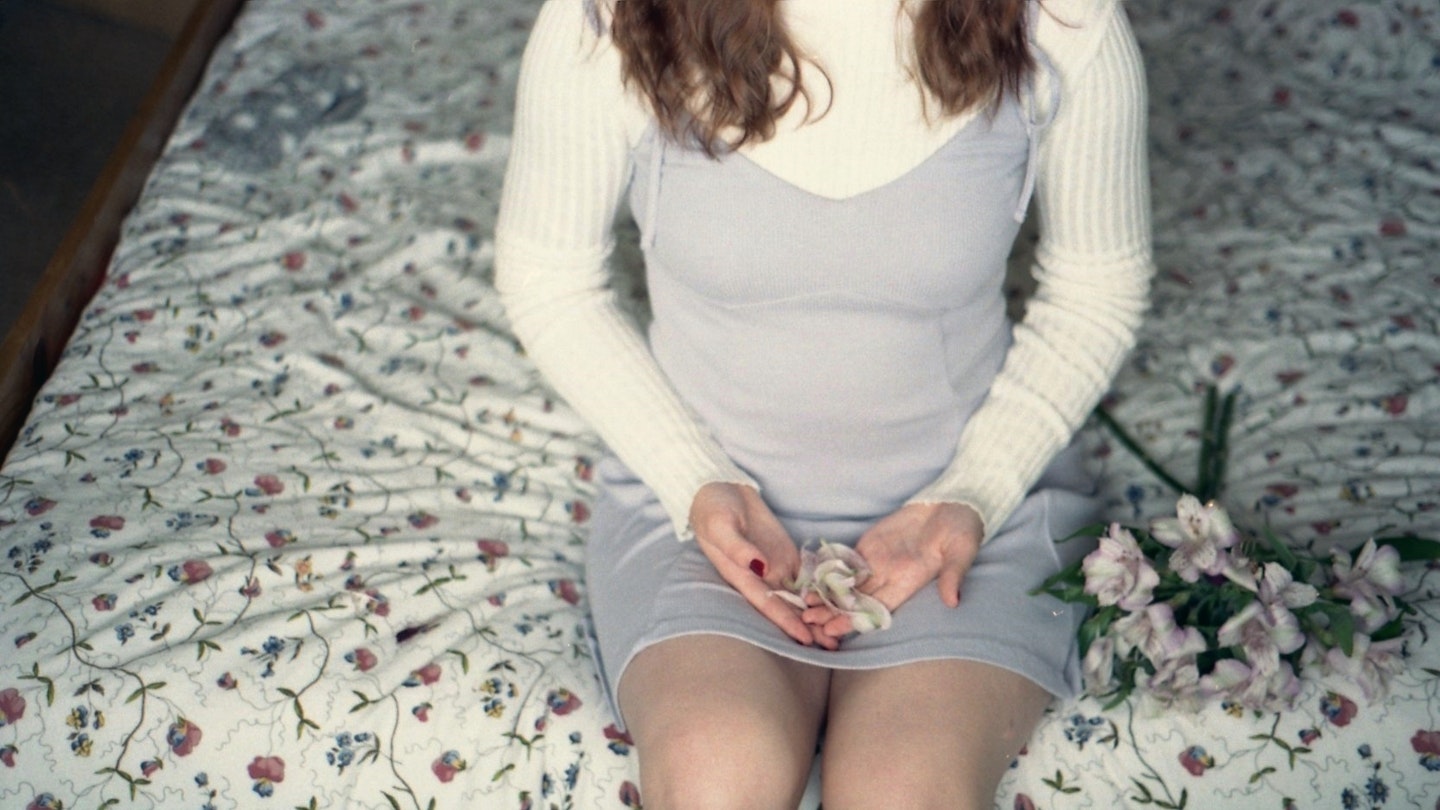One in four people in the UK experience a mental health problem each year, so chances are most of us have either been there or dated someone who’s been there. And yet, we rarely talk about how to approach romance and relationships with a mental illness, as if depression, anxiety, bipolar disorder or many other issues would necessarily put an end to our love and sex life.
'I went for a night out, I met this guy and I said I had bipolar,' says Katie Conibear, a 32 year-old from Reading. 'He just went: ‘Well, you must be a nightmare! I don’t know how anyone deals with you’.' It is an established fact, I hope, that the only nightmare would be having to deal with such a judgmental nonsense, but the story illustrates just how common such reductive stereotypes about mental health problems still are. Katie adds that she’s used to prospective dating partners assuming that she’s 'gonna be really difficult and hard work,' because, as she sees it, the stereotypes only serve to further reinforce pervasive and negative stigmas.
Despite having had depressive and manic episodes since her teenage years, Katie was misdiagnosed for years, until 2012. 'When I was younger I didn’t realise what was going on with me. [In my manic phases] I’d always want a relationship, I’d always want to be with someone, but because I was so unpredictable, it didn’t last very long,' she reflects.
Building trust and intimacy with someone is never easy, but opening up about having an long-term illness, deciding when and how to bring it up on a date adds a whole other layer of worries. Understandably, Katie used to minimise her experiences: 'I would say: "Sometimes I get really depressed" and just leave it at that' Depression may sound more reassuring than bipolar, especially if, as in Katie’s case, it comes auditory hallucinations, too: 'I didn’t explain it to anyone I dated. I never said: "Oh! By the way, I hear voices sometimes," because they would just think I was crazy and not understand it.'
Anyone suffering with a mental health problem is forced to run an impossible guantlet because of misconceptions about conditions such as bipolar. 'It’s very difficult to judge' when to say something Katie says. 'You think it’s never the right time, or they just had a bad day, so you can’t tell them. Or they’re going out with people tonight, so you can’t tell them,' Katie says, but, she adds that she has now decided to be upfront 'I say: "look, if I suddenly change and I’m really low or really high and hyperactive, this is why.”'
Finally receiving a correct diagnosis has helped her taking better care of her health and feel supported enough to be frank about it. 'When you know your diagnosis and understand it, then you know what your triggers are, you know what might make it worse, and you are more open about it,' she says. However, she says with that comes the acceptance that 'Not everyone is going to get it,' but, she now feels that if someone doesn’t understand what she goes through they are, simply 'not worthy' of her time.
Two years ago, Katie got married to a very supportive partner with whom she’s able to discuss her illness in an open and honest way. 'He didn’t look shocked about it when I told him, he just wanted to understand it' she recalls, 'it was a really good response because he wasn’t pretending like he knew it all, he wanted to know how to help me and how to support me.'
Those of us who don’t suffer from mental health problems can help by being open, available to listen, asking questions without making assumptions and allowing a person to choose how much they disclose and discuss, says clinical psychologist Tim Salzman. Disclosure of intimate details about your life is a milestone in the development of any relationship. When it comes to disclosing a mental health problem how and when you do it will depend a lot on the nature of that illness and your past experiences of people’s reactions, Tim explains: 'it hinges on knowing yourself, knowing your mental health issues and feeling that you’ve developed some basis of trust and reciprocal sharing, first.'
With so many mistruths and misconceptions about mental health - from anxiety to depression, from bipolar to eating disorders - it’s understand that anybody dealing with a serious problem might fear being rejected or misunderstood. But the everyone is about educating themselves, the more supported anyone with a mental health issue will feel when it comes to dating and starting a relationship. 'Historically, there is a pattern of social isolation and withdrawal away from society if you had a mental health problem' Tim says 'but more and more, these days, I see people becoming empowered.'
Like it was for Katie, the key is often gaining insight about personal triggers, coping mechanisms, signature responses to stress. There is huge relief too in knowing that your identity is only partly linked to the illness, and that you are not totally defined by it.
Tim explains that support is 'about giving someone the skills and the toolkit to be able to develop some confidence around the unpredictable nature of dating.' As we all know far too well, there isn’t a generic dating script that works for everyone. Even if you don’t suffer with a mental health problem, managing the emotional ups and downs, as well as the positive and negative feedback you get from others alongside your own emotional responses can be a tall order.
**READ MORE: The Debrief Investigates Hormones And Mental Health **
Debrief Mad About The Pill Stats
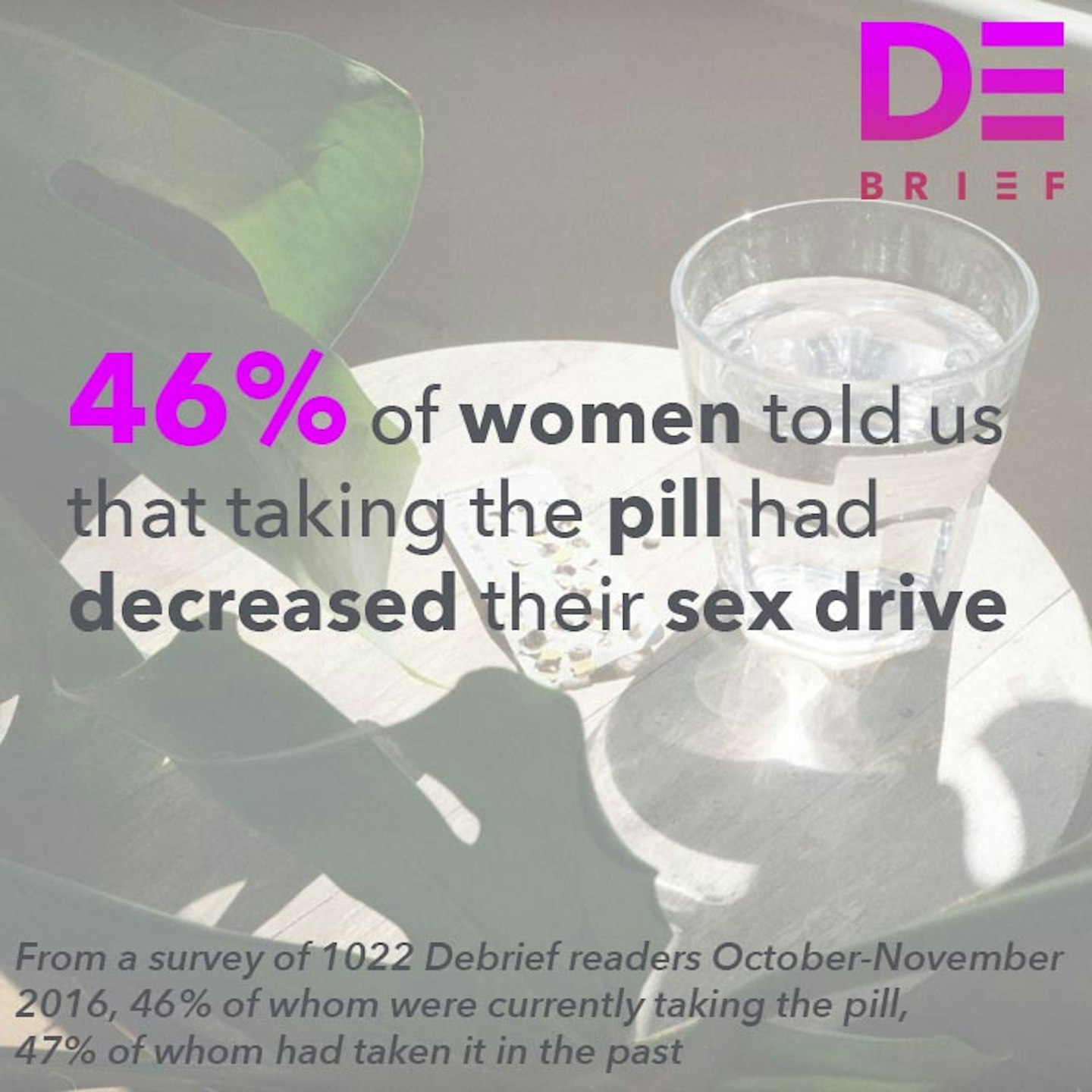 1 of 9
1 of 9Debrief Mad About The Pill Stats
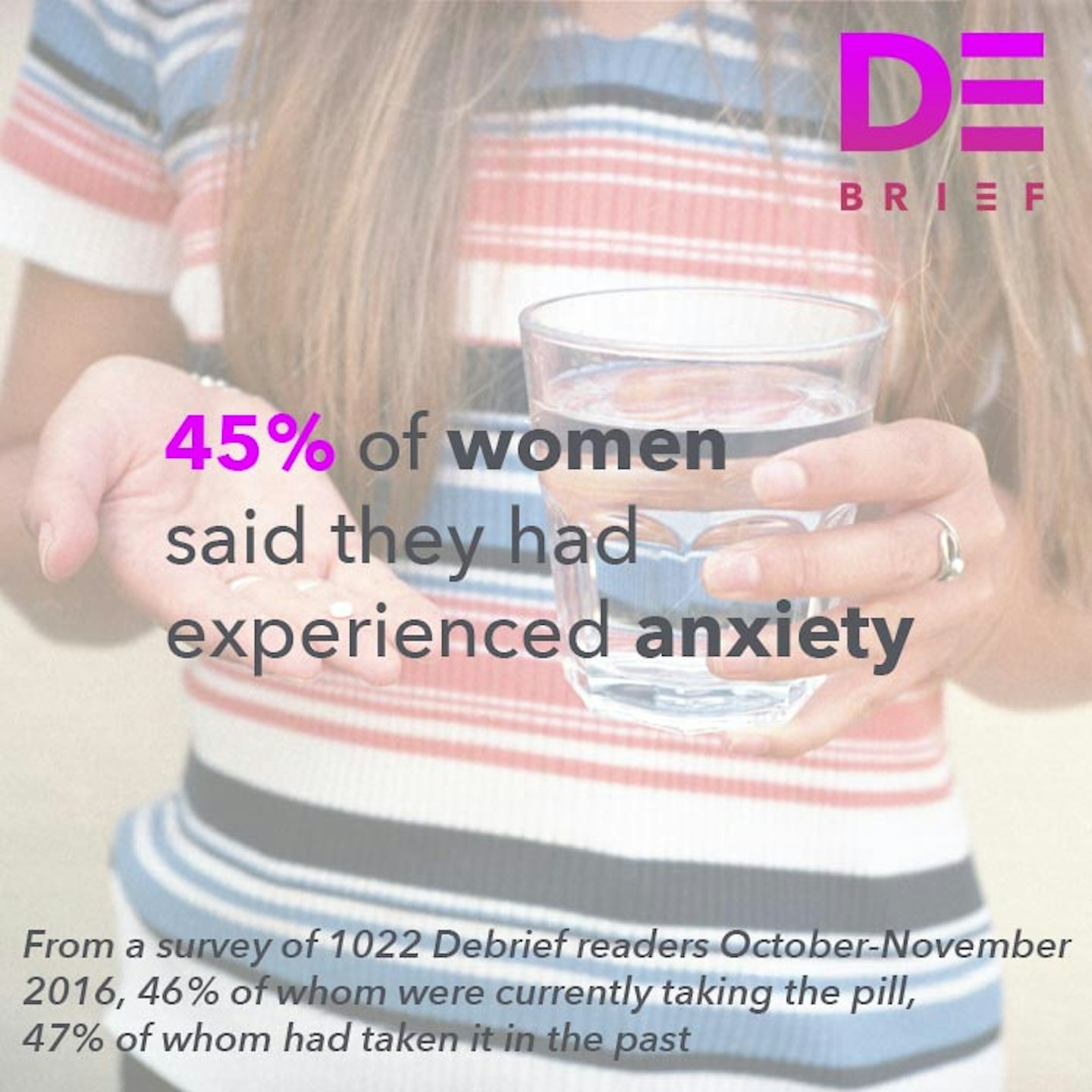 2 of 9
2 of 9Debrief Mad About The Pill Stats
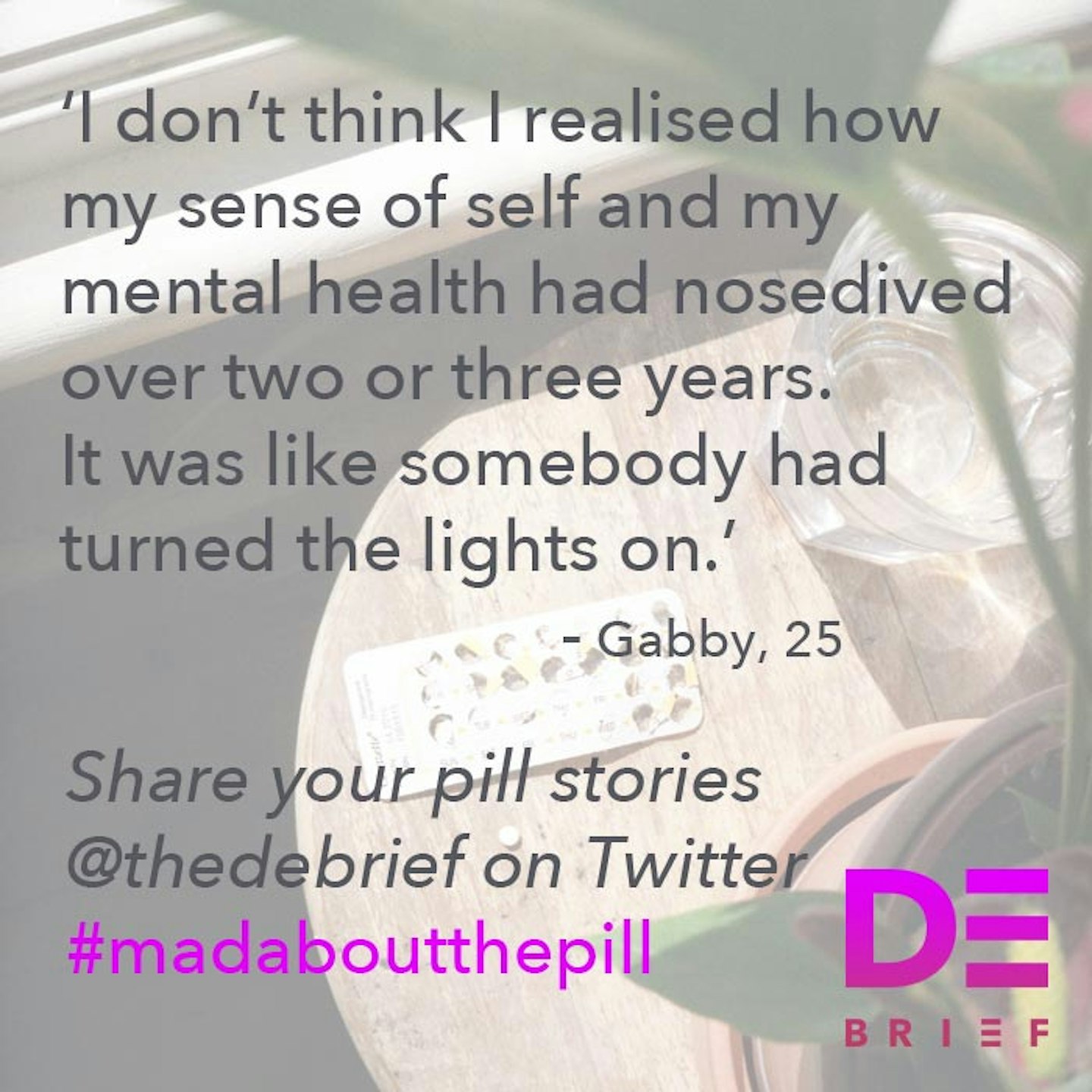 3 of 9
3 of 9Debrief Mad About The Pill Stats
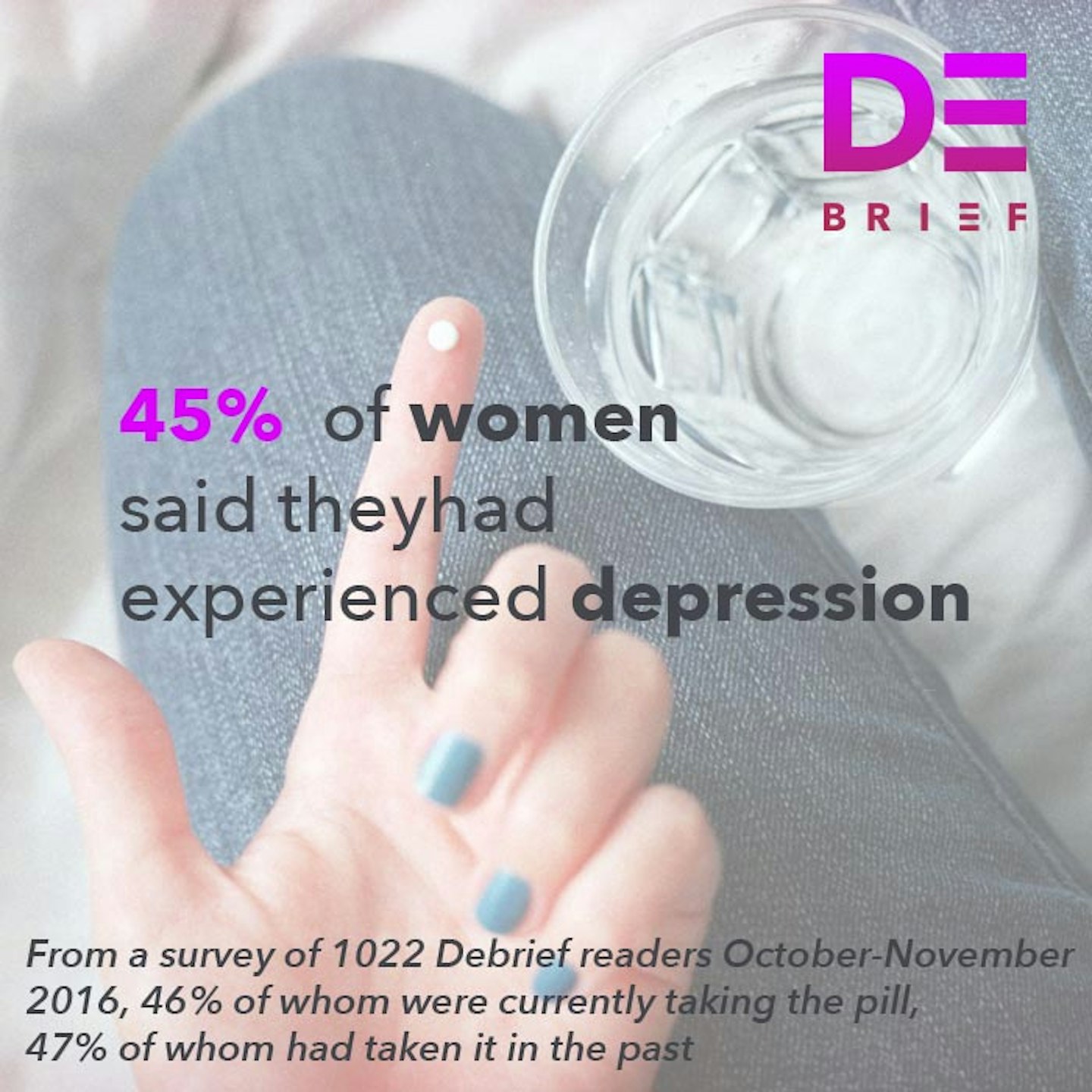 4 of 9
4 of 9Debrief Mad About The Pill Stats
 5 of 9
5 of 9Debrief Mad About The Pill Stats
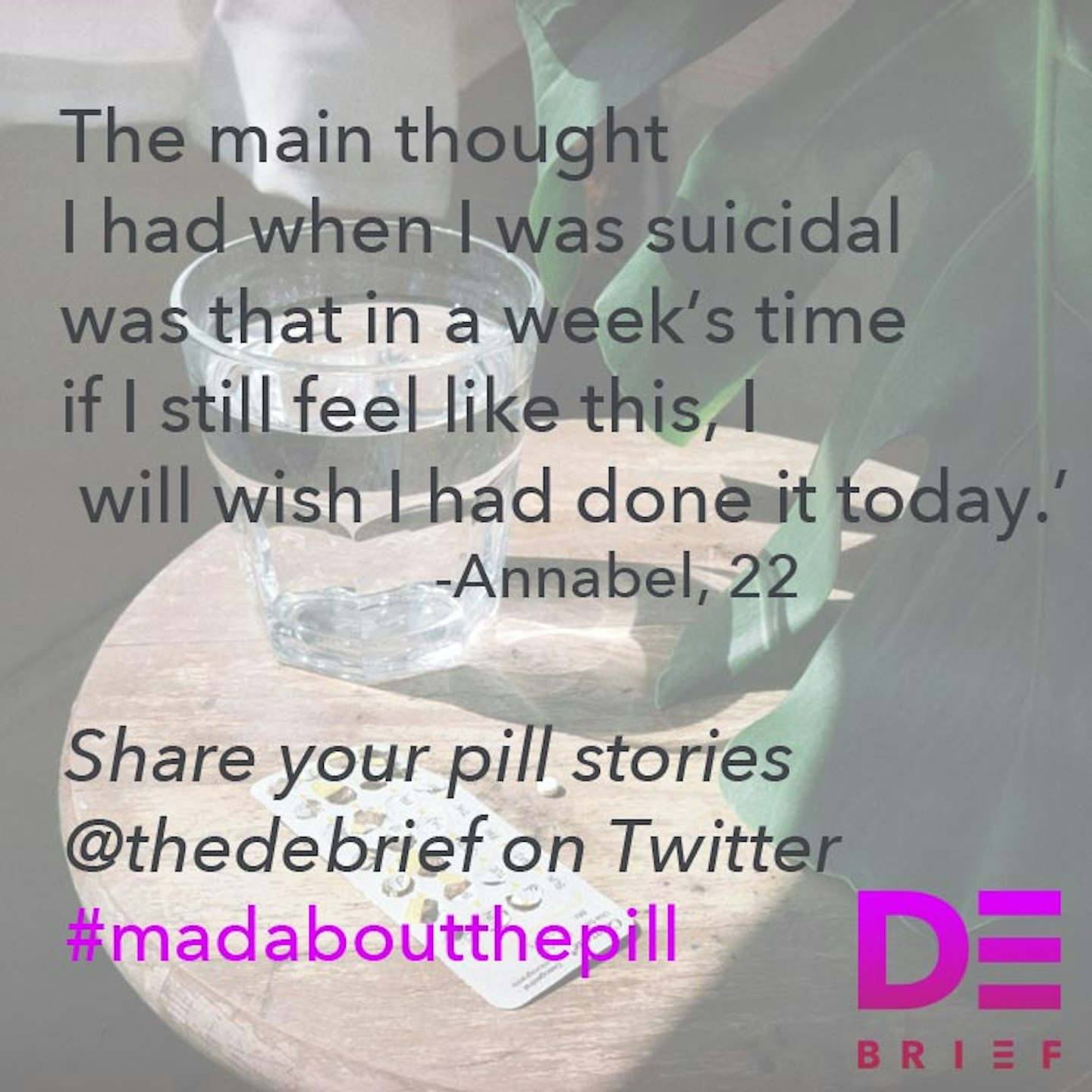 6 of 9
6 of 9Debrief Mad About The Pill Stats
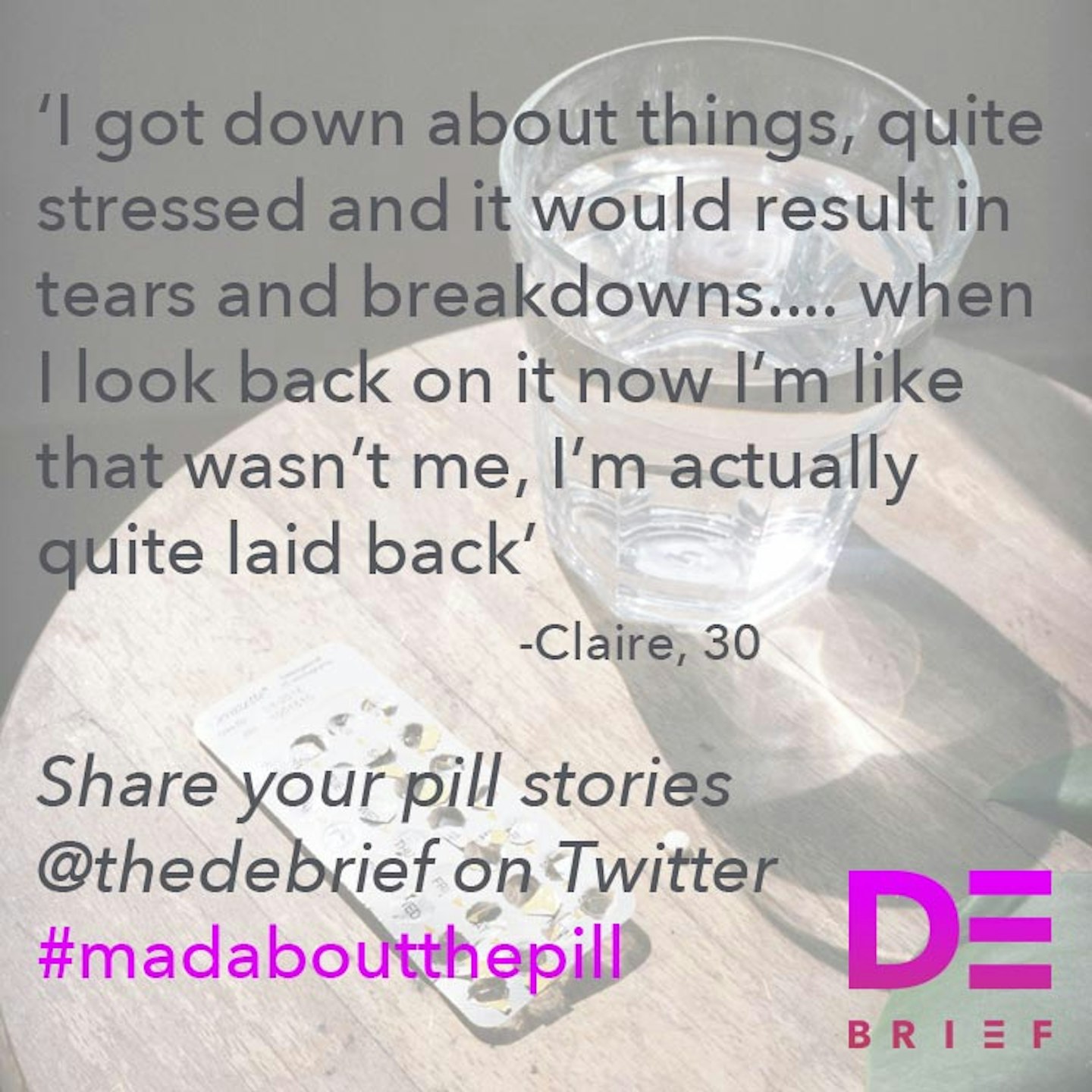 7 of 9
7 of 9Debrief Mad About The Pill Stats
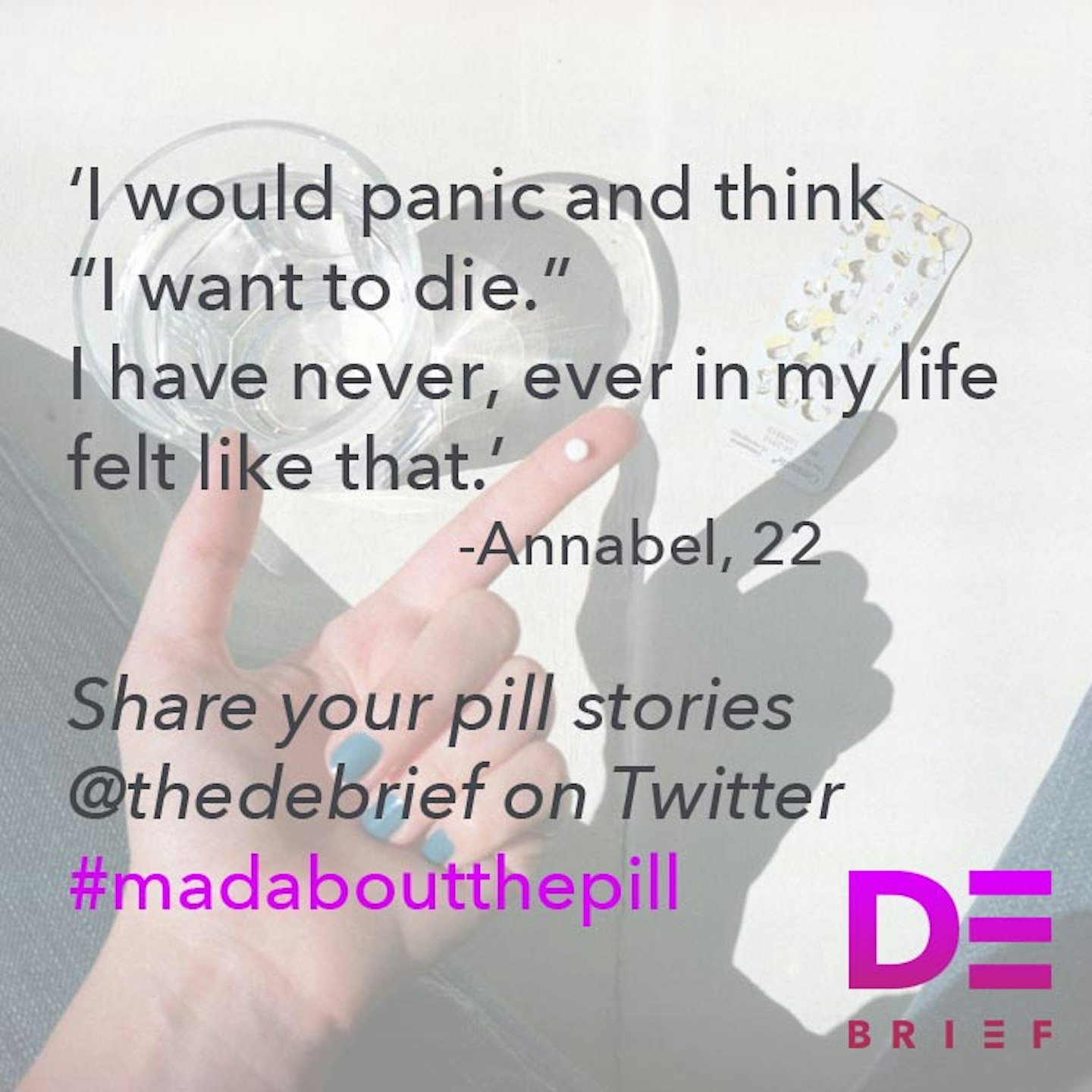 8 of 9
8 of 9Debrief Mad About The Pill Stats
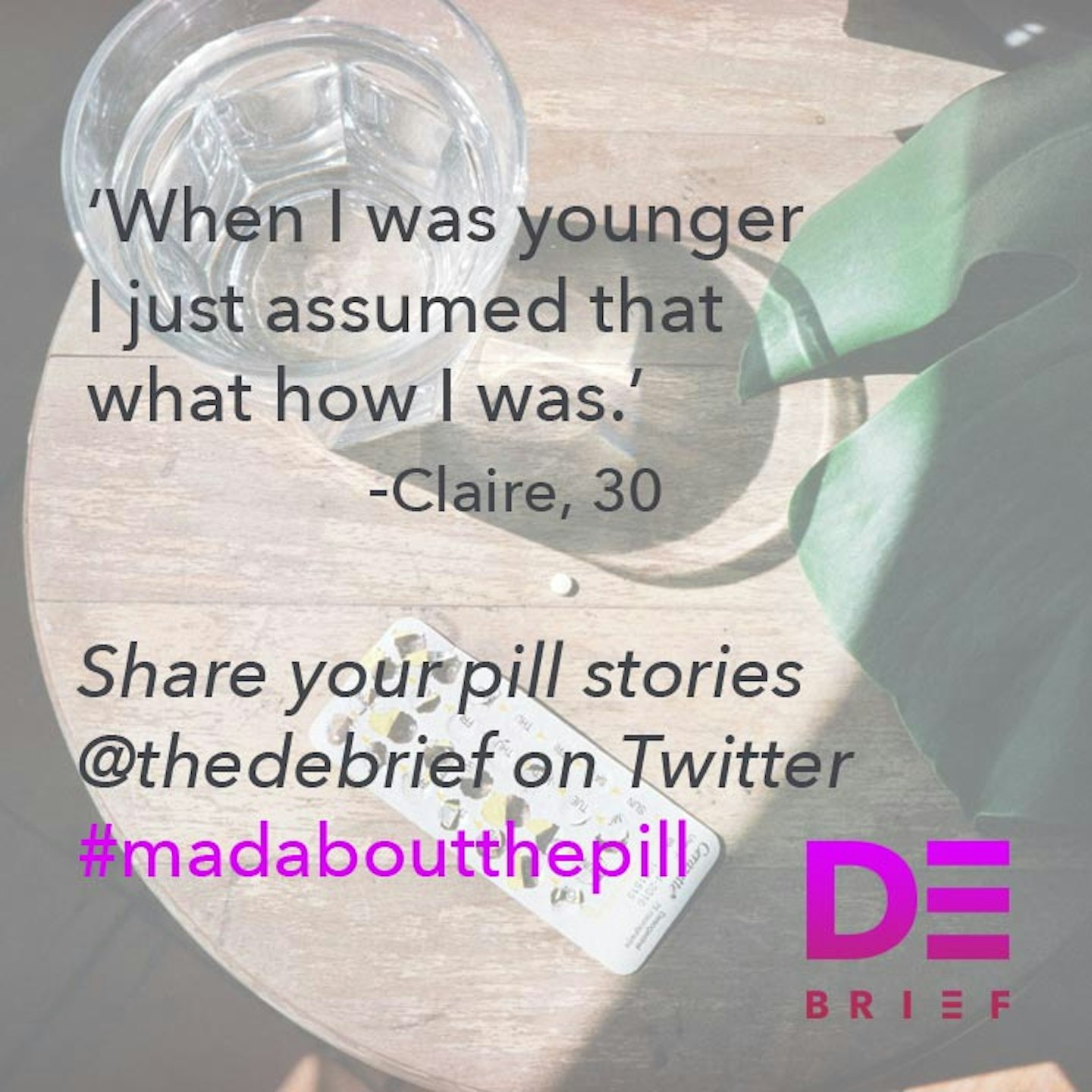 9 of 9
9 of 9Debrief Mad About The Pill Stats
Sophie Edwards, a 20 year-old from Kent, who’s dealt with social anxiety and depression since childhood says 'I obviously get the natural nerves of dating, but then times that by ten and that’s kind of what it’s like with anxiety. It makes it a lot more difficult for me to go out and talk to people. I can’t really go out in a social situation like in a bar or a pub.'
She fears that she will come off as rude, or not interested in someone she actually likes because it can be hard for her to talk in person: '[It’s important to] let them know why I’m being like I am, reassuring them that I’m not just being horrible,' she explains. But when it comes to disclosing personal issues, Sophie is reasonably cautious, often testing the waters with more general conversations about mental health, to gauge how open and understanding the other person might be. 'I also use quite a lot of dating apps. I met my ex on Twitter and we talked on there for a while, before actually meeting up. I find it much easier to get to know them a bit more before I put myself into a face to face situation,' she says.
Living with social anxiety, for Sophie it is important to choose a place where she can feel at ease, when going out for a date. 'If it’s somewhere very crowded or busy, I would just say that I find that uncomfortable and it makes me feel like I’m trapped,' she says. Her advice would be to take control, if necessary, and make sure you won’t put yourself in situations you’ll struggle to cope with.
'People can dismiss people with mental illness straight away because they think they’ve got too much emotional baggage and they might be too much effort to date, when in reality we’re just like anyone else,' she remarks. 'It’s about understanding that we are all human and the fact that we have got something doesn’t mean that we are impossible to date.'
Her biggest recommendation to others with an experience similar to hers is to make sure they’re ready to take on the worst, first: 'It can be daunting to put yourself out there, so you need to be sure that you are ready to get to know someone else and let them into your life' As she puts it, beware that people may judge you, and just accept the fact that those are not the ones for you.
'A lot of the people I work with in therapy would go on a date, come back and say: "I woke up in the morning and I was feeling sick with anxiety, therefore my mental health is deteriorating." But, actually, it’s probably not,' Tim says. 'You might wake up in the morning feeling anxious because you wanted this date to work, and the automatic assumption that any kind of excitement or anxiety is because of a deterioration in mental health, that is one of the things to get over.'
Of course, he clarifies, there are red flags not to be ignored and any critical change should be discussed with a professional: 'If there is any increasing risk-taking behaviour, if there is any significant shift in mental stability, that would be a concern.' But it is helpful to bear in mind that, actually, dating is difficult for everyone. The uncertainty of it all and fear of rejection affects us all and, perhaps, there is some comfort in that.
This article originally appeared on The Debrief.
